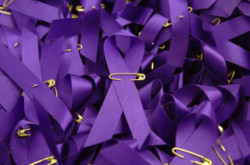
But amidst these game-changing victories, it’s important to remember the many ways that LGBTQ people and families remain especially vulnerable. October is Domestic Violence Awareness month, which provides the opportunity to focus on the need to address the often-ignored issue of domestic violence and intimate partner violence (IPV) in the LGBTQ community.
A 2013 report published by the National Coalition of Anti-Violence Programs (NCAVP) shows a 29.6% increase in IPV generally from 2011 to 2012 Disturbingly, a majority of the homicides resulting from IPV were from the LGBTQ community. A closer examination reveals that LGBTQ youth, persons of color, gay men, and transgender women were the most likely to sustain injuries, require medical care, or be victimized by anti-LGBTQ bias and harassment as a result of IPV.
Efforts are needed to raise visibility of the existence of this violence in LGBTQ communities and to keep people safe. Because youth are particularly vulnerable, work must be done to increase education about domestic violence, IPV, and resources available for survivors. In high school and college campuses across the country, Gay Straight Alliances (GSAs) have adopted a strategy that can be useful in empowering youth. The GSA model is well-suited for all youth – straight and gay – to have conversations about how one can cultivate healthy relationships with others, while simultaneously develop the courage to speak openly about potentially abusive interactions.
Legislative and policy efforts are also needed to help protect survivors of this violence. Last year’s reauthorization of the Violence Against Women’s Act (VAWA) that included important nondiscrimination protections on the basis of sexual orientation and gender identity was a powerful step forward towards addressing IPV in the LGBTQ community. In addition, the NCVAP’s recommendations towards creating cultural competency within the institutional structures that tackle IPV, such as police investigations, prosecutors, and domestic violence shelters, are crucially indeed needed and must be implemented.
The Center for Disease Control and Prevention (CDC) is also seeking to promote prevention strategies aimed at IPV. NCLR is committed to working closely with the CDC and other agencies targeting domestic violence and IPV to ensure that these efforts are undertaken in a way that is inclusive of the particular needs of LGBTQ people and families. We will continue to advocate for resources and services that increase awareness of this violence in LGBTQ communities, and work to prevent it.









